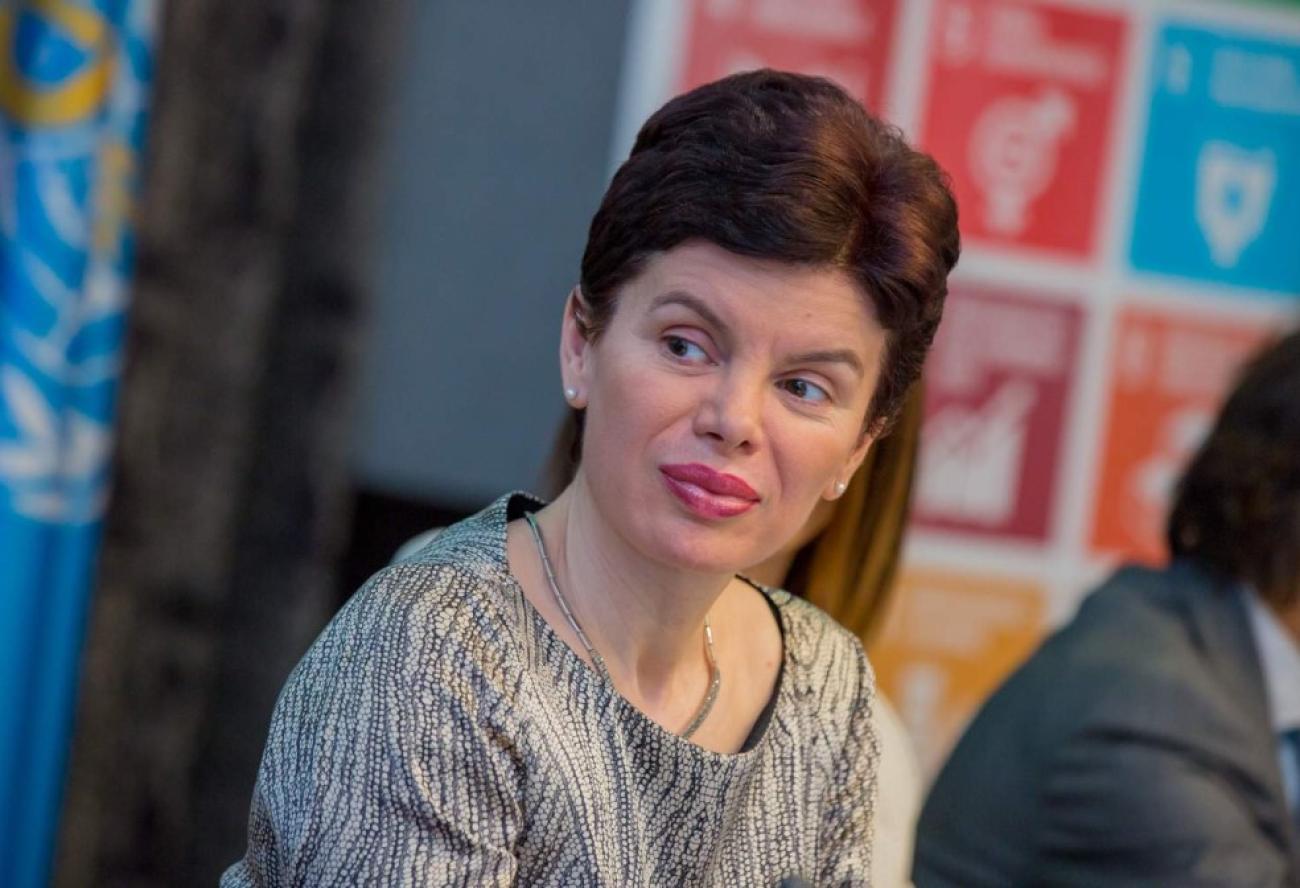Health is Everyone’s Right, Not a Privilege of a Chosen Few

Achieving universal health coverageis a requirement for achieving fundamental right to health, but also a number of other SDGs directly correlated with heealth.
Op-Ed by Mina Brajović, Head of WHO Office in Montenegro
The essence of universal health coverage is in equal access to quality health services. This is a concept which connects health care with health needs, not with depth of one’s pockets or the ability of individuals and households to cover the costs of health care. WHO’s office in Montenegro has organized a national meeting, in partnership with the Ministry of Health, in order to mark the day when World Health Organization was established – 7 April – and an important jubilee – seven decades of existence of WHO.
This year, the thematic focus has been put on achieving universal health coverage (UHC), a concept which not only improves health, but also contributes to economic growth, creation of new jobs, achieving gender equality, decreases poverty and protects the population from epidemics.
Benefits
Citizens can see the benefits of universal health coverage on daily basis – when a mother takes a child to get vaccinated; when a person with diabetes has access to quality medicines and complications are prevented thanks to efficient functioning of the health care system; when primary health care participates in prevention and efficiently takes care of persons suffering from high blood pressure; when legislation on prohibition of smoking in public places is enforced and when tobacco is not available.
The concept of universal health coverage has been introduced to the system of human rights through the adoption of the Universal Declaration of Human Rights and its Article 25, which proclaims that “everyone has the right to a standard of living adequate for the health and well-being of himself and of his family”. In addition to WHO’s policies, which have been promoting health coverage for everyone since 1970s, primarily through a robust primary health care, the promotion of health as everyone’s right, and not a privilege of a chosen few, has become an integral part of UN system’s political agenda thanks to the adoption of the Resolution on Universal Health Coverage in 2012. When adopting the 2030 Agenda for Sustainable Development, the leaders of Member States have agreed that the world would be a better place for everyone if health is put in the centre of sustainable development and if investments were made into achieving universal health coverage. Investments in equal access to quality health care services are also investments in human capital, which initiate inclusive and sustainable growth and development and enable citizens to achieve their full potential and aspirations. Just as a reminder, ¼ of economic growth in low and middle income states for the period 2000-2011 was a result of health improvements.
Achieving universal health coverage (2030 Agenda for Sustainable Development’s Goal 3.8) – including financial protection, availability of quality health care services, but also safe, efficient and quality medicines and vaccines affordable to citizens – is a requirement for achieving fundamental right to health, but also a large number of other sustainable development goals which are directly correlated with health.
Important dates in the history of the universal health coverage concept are a reminder – achieving UHC is a continuous process, which changes depending on demographic, epidemiological and technological trends and expectations of citizens. Simultaneously, as any other process, achieving UHC requires time for adoption of the content of this concept, or to put it differently, for it to triumph and be put into practice.
Global Report
How much we have progressed on this path can be most clearly seen from the Tracking Universal Health Coverage: 2017 Global Monitoring Report, which was jointly prepared and published by WHO and World Bank (WB) in December last year.
The report points out that the access to basic health care services globally is significantly hampered by highly present and diverse obstacles, which include a very broad spectrum of barriers, including insufficient number of health care workers and unsatisfactory level of their competencies and skills, waiting lists, complicated administrative procedures, lack of awareness among citizens on risks from diseases, and high levels of out-of-pocket payments of households for health care. According to WHO’s and WB’s data, at least half of global population has no access to quality basic health care services. Approximately 800 million people around the world spend more than 10% of their household budget for health care, while 100 million people are being pushed into extreme poverty each year, because they are forced to pay out-of-pocket for health care services or medicines they require.
It should be unimaginable that in 21st century, if you require a medicine or a health care service, you are being forced to pick between two equally important life needs – medicines for your health or putting the food on the table for your family’s health and survival.
Therefore, in these circumstances, the promotion of health and achieving UHC is of key importance for overcoming these challenges and achieving the key principle of 2030 Agenda for Sustainable Development, i.e. creation of a society in which no one is left behind and health is everyone’s right, not a privilege of a chosen few. Since the measure of progress made in achieving universal health coverage is availability of quality health care services and level of financial protection for those who are in need of health care, we have, among other things, discussed in the report the level of out-of-pocket payments of households as percentage of total health care services consumption. WHO’s data shows that there are significant discrepancies in regard to protection from financial risks among European countries. According to WHO’s data, the level of out-of-pocket payments should be no more than 15%. High out-of-pocket payments represent a serious barrier for usage of health care services, a big hit on household budgets and all too often lead people into poverty, and on the social and system level represent an obstacle to sustainable development and growth. Out-of-pocket payments in Montenegro are at more than 40% and are at the level qualified by WHO as the “dangerous zone”, which was also recorded in a few other European region countries with medium level of development, like Uzbekistan, Kazakhstan, Bulgaria and Ukraine.
Political Dedication
During evaluation of availability level, i.e. quality, cost-benefit ratio and timely provision of basic health care services, the focus was on the provision of health care in four areas: reproductive health, health of mothers, infants and children; communicable diseases, chronic diseases and capacity of the health care system. Findings of the report point that levels of accessibility of health care services vary significantly from country to country. One half of world’s population is unable to meet its basic health care needs, since they cannot access basic health care services.
In Montenegro, the basic health care services accessibility level is lower that the global average (64) and significantly lower that the European region average (73). The basic health care services accessibility index for Montenegro is 53 and it is lower than the accessibility index for South-East European countries.
What is encouraging is the political dedication of the Government, which was turned into a set of systemic, contemporary laws and health care policy which promotes further strengthening of the health care system, with a special focus on primary health care as foundation of a functional health care system, that has the capacity to accomplish its primary mission – to bring quality health care services to each and every citizen in need of them, and to ensure an adequate level of financial protection. Every dollar invested in health brings up to 20 dollars in income growth within one generation.
Health is everyone’s right. Equality is at the core of universal health coverage. In order that this value, a product of global society’s development, is made available to all citizens equally, it is necessary to mobilize all other sectors around health – it being the central theme and link of sustainable development. Creation of a system and a society that promotes health has to be the task of all sectoral policies of education, finances, improvement of air quality, traffic safety and urban planning, in order to improve health and provide an efficient response to chronic disease epidemic.
By investing in the health care system and strengthening multi-sectoral cooperation, we are investing in health for everyone and in the future of the society.
Written by


